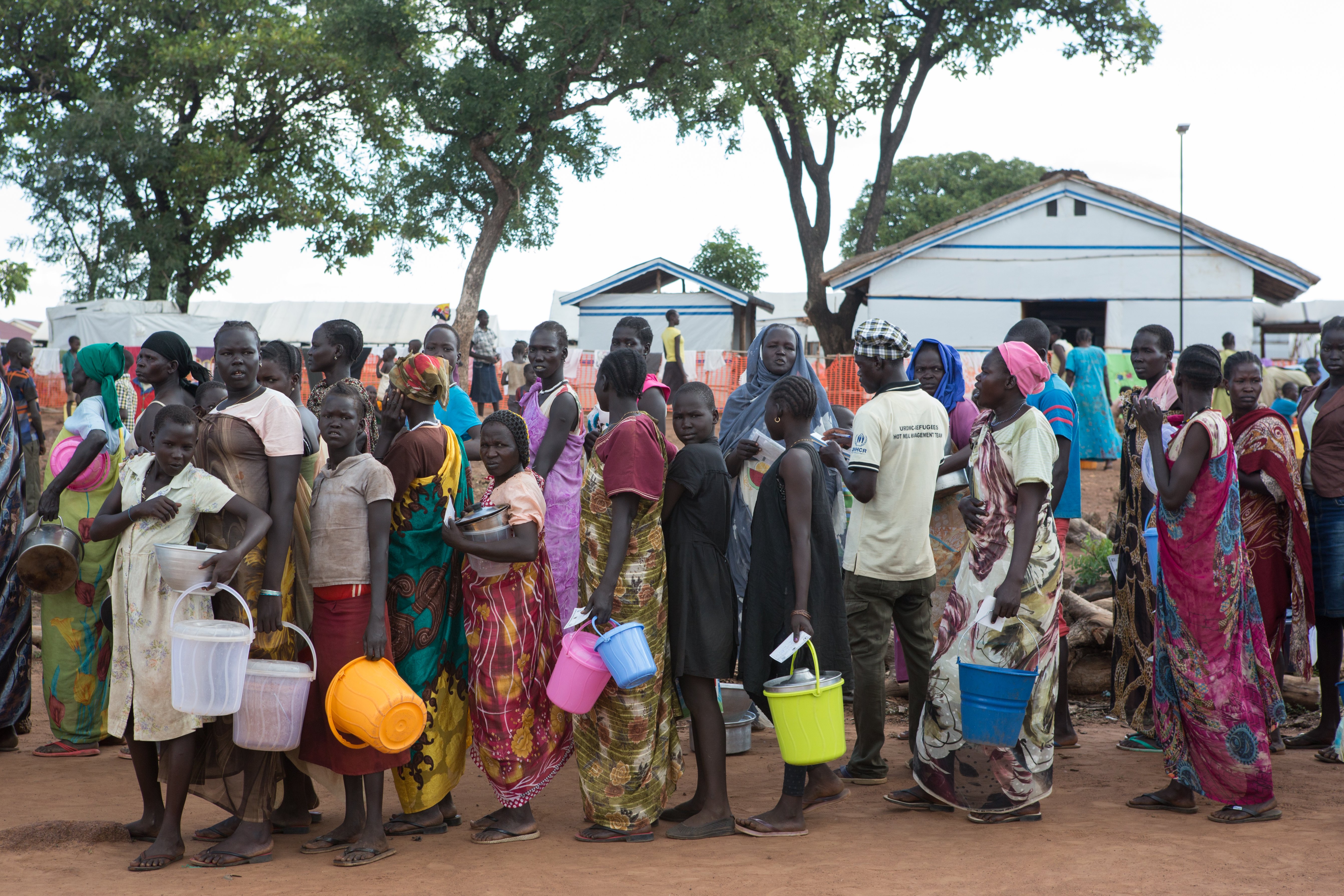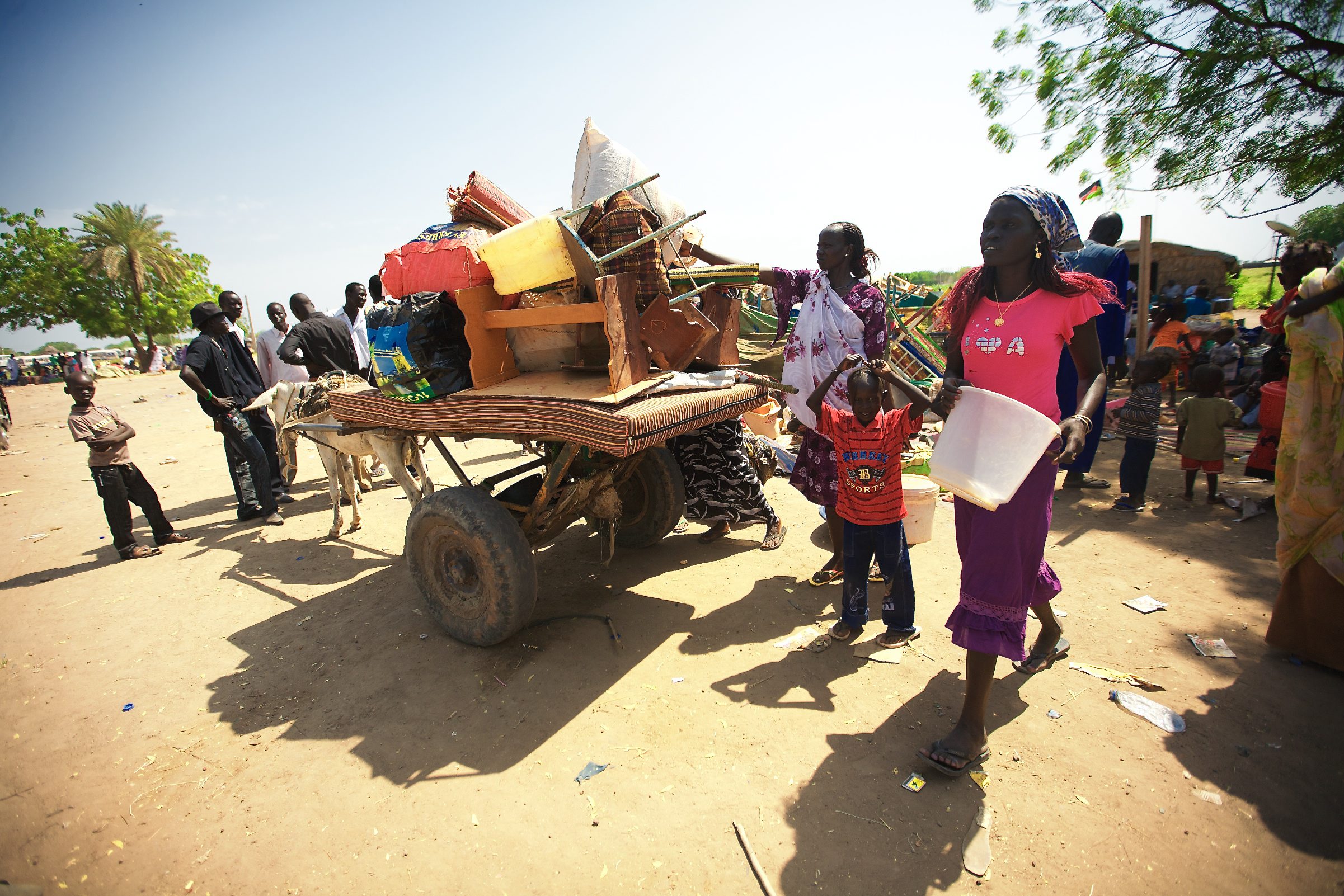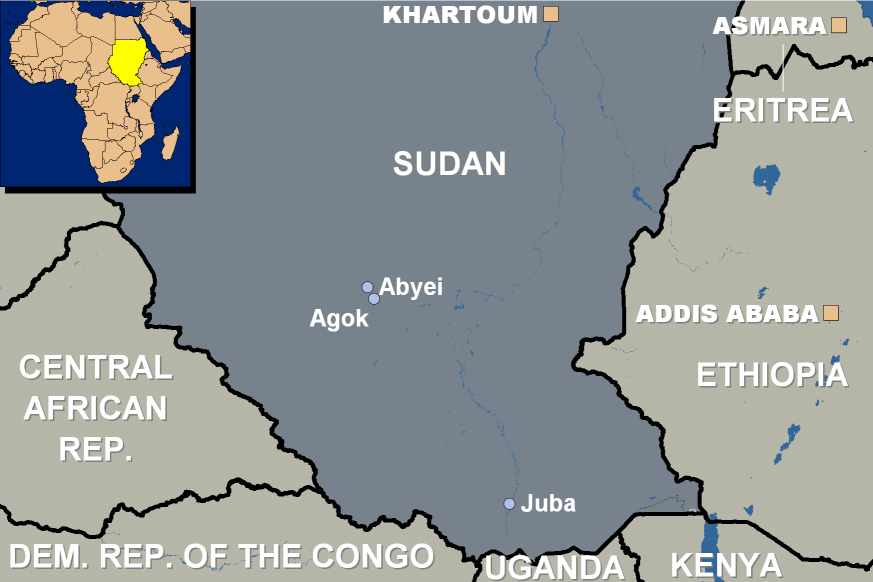Sudanese refugees learn new skills in UNHCR-funded course in Uganda
Sudanese refugees learn new skills in UNHCR-funded course in Uganda

ADJUMANI, Uganda, July 3 (UNHCR) - The students, wearing jumpsuits and baseball caps rather than gowns and mortarboards, proudly accepted their mid-course awards at a UNHCR-funded mechanical repair workshop here in northern Uganda.
The workshop services vehicle fleets of UN agencies in Moyo and Adjumani districts, but also now offers a comprehensive two-year course in mechanics, joinery and metalwork. Thirteen of the first 20 male and female students are refugees from Sudan, with the others local Ugandans - all hope to help their communities with their new skills.
"I am happy today because the workshop is giving me skills I can use back home in Sudan when I go back," said Charles Sebit, a 35-year-old father of three, who is from the southern Sudan town of Kajo Keji, just across the border from Moyo.
Hundreds of thousands of people fled southern Sudan between 1989 and 2005 to escape fighting between the Sudan People's Liberation Army and the Khartoum government. Sebit has since been displaced by the activities of northern Uganda's rebel Lord's Resistance Army and lives in the Oligi settlement on the banks of the Nile.
"I will bring my family home as soon as UNHCR can take us and I will stay in Uganda to finish the course in 2007 so that back home I can make doors, windows and ox ploughs. These are things that Sudan needs to rebuild and I will open a shop to provide them," added Sebit, who will now specialise on fabrication of tools after learning the basics of mechanics and joinery.
Tarik Muftic, head of the UNHCR sub-office in Moyo, came up with the idea of the course in early 2004. "Our goal was to equip refugees with marketable skills that would help ease their eventual return, transition and reintegration into a devastated southern Sudan," he said, adding that Ugandans were also taking part in the course and learning skills valuable for the local economy.
"This workshop underscores the philosophy of all of our programmes - providing community-based actions that benefit both refugees and nationals and foster self-reliance."
UNHCR implementing partner, Action Africa Hilfe (AAH), turned Muftic's dream into reality. Within two months, the agency hired a course instructor and picked the first student intake of 11 women and nine men.
The refugee agency agreed to finance the entire project and the UN World Food Programme donated food from its Food for Education Programme, which aims to foster human development.
The fruits of the students' work were displayed around a hall during the awards ceremony last month. They included two types of wheelchair, a vegetable oil press, a juicer, a nut grinder, ploughs and a bore hole pump, all made from scraps of metal under the guidance of AAH's Apollo Twijukye.
Leading by example, the dynamic Ugandan serves as a role model to the trainees. He is continually improving, inventing and coaching, even coming on Saturdays to help the weaker students. AAH staff also provide counselling and support and teach such things as how to handle an interview, market one's talent, combat sexual and gender-based violence and prevent the spread of HIV/AIDS.
Mary Auwa, a 19-year-old living at the Oligi settlement, said she felt she had become a financial burden to her family, with no marketable skills and poor job prospects after being forced to abandon her studies due to a lack of funds.
When she learned about the course from the chairman of her refugee welfare committee, she told her parents and received their full backing to apply for a place even though it would mean renting a room in Adjumani. The workshop has given her hope of becoming an engineer one day. Auwa's friends have been asking her how they can sign up for the course.
Fellow student Grace Modo, who takes her one-year-old son to the courses, said she had always wanted to become an engineer and now she was getting the chance to achieve her dream. "Then, once UNHCR can take us back to Eastern Equatoria [province], I will take part in rebuilding Sudan. I came to Uganda as a three-year-old in 1989, but I want to go back home," she added.






